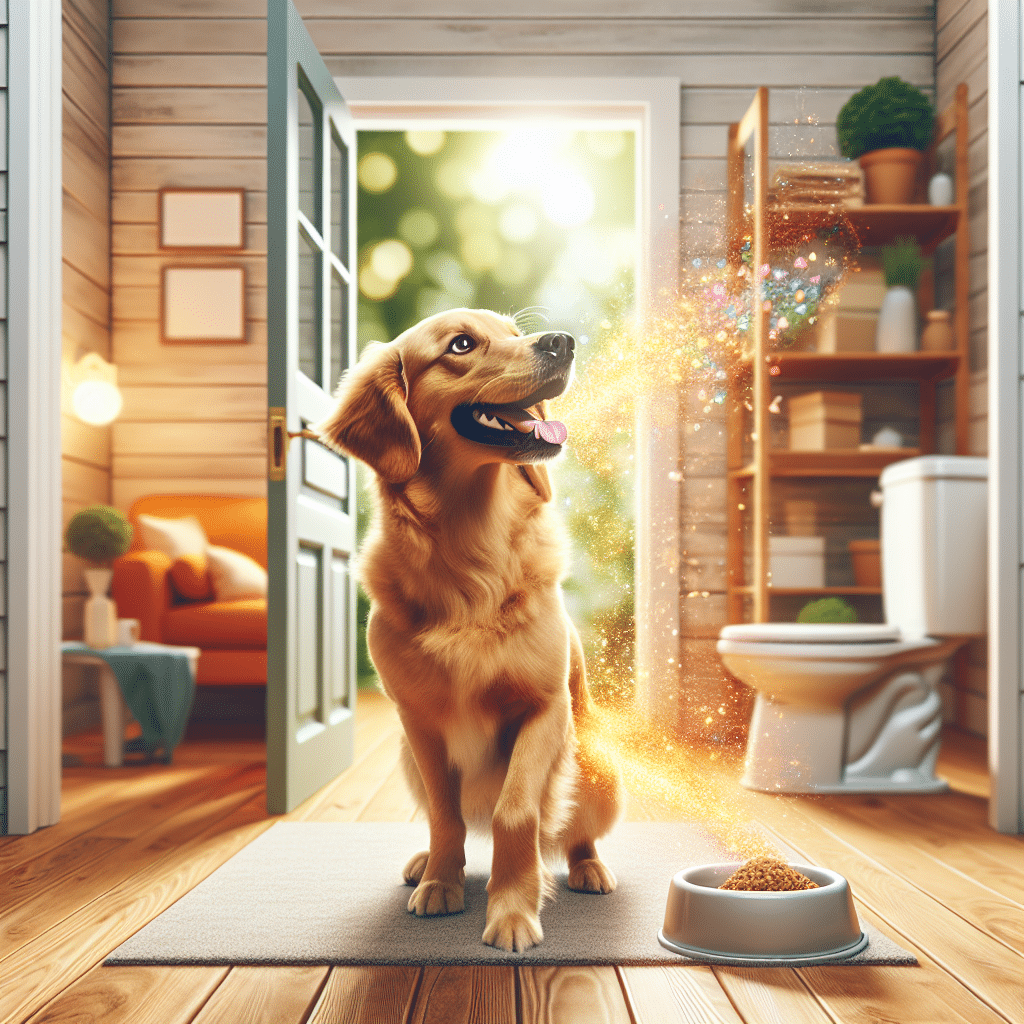
Welcome to the World of Dog Training and Health!
Housebreaking a Puppy: The Essential First Step
Welcome to our self-guided online lesson for dog lovers focusing on the health and training of dogs. One of the most crucial aspects of welcoming a new puppy into your home is housebreaking. Ensuring your puppy is properly house trained sets the foundation for a happy and harmonious relationship between you and your furry friend.
In this lesson, we will provide you with detailed solutions and tips to successfully housebreak your puppy. From establishing a routine to understanding your puppy's cues, we will guide you through the process step by step. By the end of this lesson, you will have the knowledge and tools to effectively housebreak your puppy and set them up for a lifetime of good behavior.
So, get ready to embark on this rewarding journey of housebreaking your puppy and creating a loving and well-trained companion!
When housebreaking a puppy, it is important to also focus on their basic health needs. A healthy puppy is more likely to learn and adapt to new routines, including potty training. Here are some key health considerations to keep in mind:
Regular Veterinary Check-Ups: It is essential to take your puppy to the veterinarian for routine check-ups and vaccinations. A healthy puppy will have an easier time adjusting to their new environment and training.
Proper Nutrition: Providing your puppy with a balanced diet is crucial for their overall health and well-being. Consult with your veterinarian to determine the best food options for your puppy's age, breed, and size.
Hydration: Always ensure that your puppy has access to fresh, clean water at all times. Proper hydration is vital for their health and can also aid in the housebreaking process.
Exercise: Regular exercise is important for maintaining your puppy's physical and mental health. A well-exercised puppy is more likely to have regular bathroom habits, making housebreaking easier.
Parasite Control: Keep your puppy protected from fleas, ticks, and other parasites by using appropriate preventive measures recommended by your veterinarian. Parasites can not only affect your puppy's health but also disrupt their training process.
By focusing on your puppy's basic health needs, you are setting them up for success in their housebreaking journey. Remember that a healthy puppy is a happy puppy!
When it comes to housebreaking a puppy, diet and nutrition play a crucial role in their overall health and training success. A well-balanced diet not only supports your puppy's physical development but also affects their digestive system and bathroom habits.
Here are some key points to consider when it comes to diet and nutrition for housebreaking your puppy:
- Consistent Feeding Schedule: Establish a regular feeding schedule for your puppy. This helps regulate their bowel movements, making it easier to predict when they need to go outside to eliminate.
- High-Quality Puppy Food: Choose a high-quality puppy food that is appropriate for your puppy's age, size, and breed. Avoid feeding them table scraps or food that may upset their stomach.
- Proper Hydration: Make sure your puppy has access to clean, fresh water at all times. Proper hydration is essential for their overall health and digestion.
- Monitor Treats: Limit the number of treats you give your puppy, as excessive treats can lead to digestive issues and impact their housebreaking progress.
- Consult a Veterinarian: If you have any concerns about your puppy's diet or nutrition, consult with a veterinarian. They can provide guidance on the best food choices and feeding practices for your puppy.
Regular exercise and mental stimulation are essential components of housebreaking a puppy. Just like humans, dogs need physical activity to stay healthy and maintain good behavior. By incorporating daily exercise into your puppy's routine, you can help them burn off excess energy and reduce the likelihood of accidents in the house.
One effective way to provide exercise for your puppy is through daily walks. Aim for at least 20-30 minutes of walking each day, depending on your puppy's breed and age. Not only does walking help with housebreaking by encouraging regular bathroom breaks outside, but it also strengthens the bond between you and your furry friend.
In addition to physical exercise, mental stimulation is just as important for housebreaking success. Puppies are naturally curious and intelligent animals that thrive on mental challenges. Providing interactive toys, puzzle feeders, and training sessions can keep your puppy engaged and mentally stimulated throughout the day.
Remember to vary the types of mental stimulation activities to prevent boredom and ensure your puppy stays focused on learning good potty habits. By combining regular exercise and mental stimulation, you can set your puppy up for housebreaking success and create a happy, well-balanced companion.
When housebreaking a puppy, grooming and hygiene practices play a crucial role in maintaining a clean and healthy living environment for both your puppy and your family. Here are some essential tips to help you with grooming and hygiene:
Regular grooming sessions: Establish a routine for grooming your puppy, including brushing their coat, trimming their nails, and cleaning their ears. Regular grooming not only keeps your puppy looking neat but also helps prevent skin issues and infections.
Clean up accidents promptly: Accidents are a normal part of housebreaking a puppy. It's essential to clean up any messes promptly to prevent odors and potential health hazards. Use pet-safe cleaning products to thoroughly clean soiled areas.
Maintain a clean living space: Keep your puppy's living area, such as their bed and toys, clean and free of dirt and bacteria. Regularly wash their bedding and toys to prevent the spread of germs and parasites.
Proper waste disposal: When housebreaking a puppy, it's crucial to dispose of waste properly. Use biodegradable waste bags to pick up after your puppy during walks and ensure that your backyard is clean and free of waste.
Regular vet visits: Regular veterinary check-ups are essential for maintaining your puppy's overall health and hygiene. Your vet can provide guidance on proper grooming practices and recommend any specific hygiene products suitable for your puppy.
By incorporating these grooming and hygiene practices into your puppy's routine, you can create a clean and comfortable environment that supports their housebreaking training and overall well-being.
Regular check-ups with a veterinarian are essential in maintaining the health and well-being of your puppy, especially during the housebreaking process. A veterinarian can provide guidance on proper nutrition, vaccinations, and overall health to ensure your puppy is in optimal condition for training.
During the initial stages of housebreaking, your veterinarian can also address any potential health issues that may be affecting your puppy's ability to learn and adapt to the training. Issues such as urinary tract infections or digestive problems can impact the housebreaking process, and a veterinarian can provide the necessary treatment and advice to help resolve these issues.
Additionally, regular check-ups allow the veterinarian to monitor your puppy's progress and provide feedback on the housebreaking process. They can offer tips and strategies based on your puppy's specific needs and behaviors, helping you tailor your training approach for the best results.
Remember to schedule routine check-ups with your veterinarian to ensure your puppy is healthy and set up for success in the housebreaking journey.
Final Thoughts
Reminder of the Goal
As we wrap up this lesson on the health and training of dogs, let's not forget the ultimate goal of achieving a cleaner home environment through successful housebreaking of your puppy. Remember, consistency and patience are key when it comes to training your furry friend.
Feel free to review this lesson if you need a refresher and don't hesitate to explore the other lessons in this course for more valuable insights on caring for your beloved canine companion.
